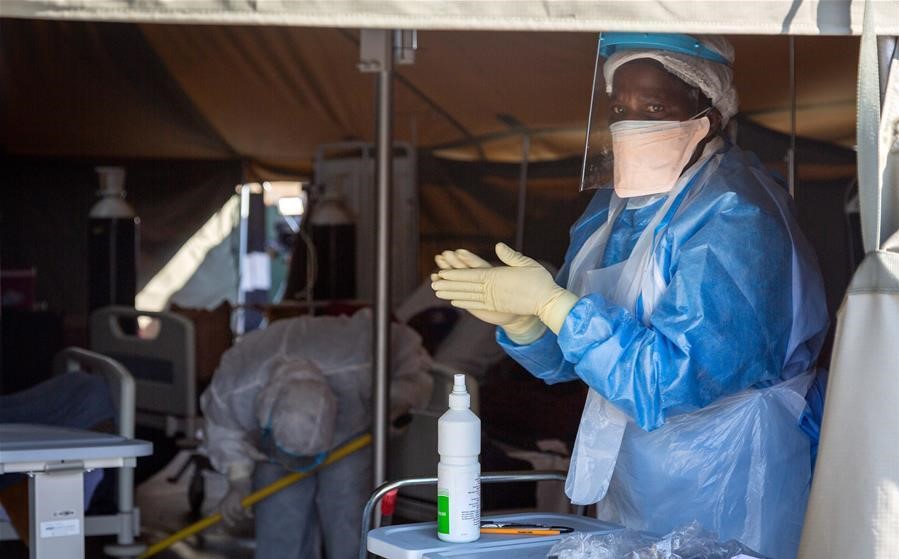
South Africa prepares for possible resurgence of COVID-19, says health minister

South Africa is preparing for a possible resurgence of the COVID-19 pandemic, which seems to be abating in recent days in the country, Health Minister Zweli Mkhize said on Friday.
Although South Africa has seen fewer confirmed cases these days, the country is still waiting and preparing for a higher increase based on the forecast and models, Mkhize said in his update on the government’s response to the pandemic.
According to the latest figures, the country recorded 572,865 confirmed cases and 11,270 related deaths as of Thursday.
But for the past few days, the daily confirmed cases had hovered around 3,000, much lower than around 10,000 about one week ago.
South Africa remains the COVID-19 epicenter in Africa, with more than half of the total cases in the continent.
Worldwide, the country ranks the fifth in terms of confirmed cases, after the United States, Brazil, India and Russia.
Despite this, Mkhize said: “From what we are seeing, South Africa has fared a little better than we initially anticipated.”
South Africa had anticipated that the impact of COVID-19 would be far worse, with a much higher infection rate, Mkhize said.
Responding to growing calls for further easing the lockdown so as to re-open more sectors of the economy, Mkhize said the government has not yet reached any decision on whether to ease the lockdown regulations.
The issue was still under consideration by the National Coronavirus Command Council, according to Mkhize.
“Right now a lot of consultations are going on and with the numbers that are moving, there’s certainly adjustments that we have to look at,” he said.
Speaking on another occasion when welcoming a team of WHO experts who arrived in South Africa on Friday, Mkhize said the country is only now considering easing some of the restrictions and still to cross that critical juncture of re-opening of its borders.
“Apart from the impact on the health system that this virus has had, we are still faced with the devastation it has caused in our social lives, our well being, the economy and the environment,” he said.
“With the threat of resurgence remaining very real, we would not want to repeat recent history witnessed in some countries and allow a second surge to wreak even further destruction,” he added.






